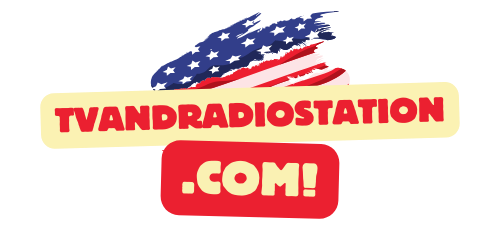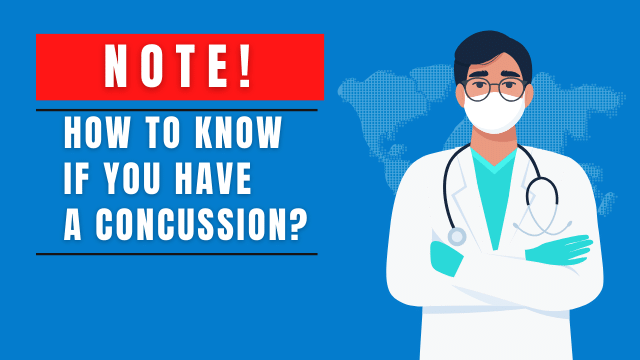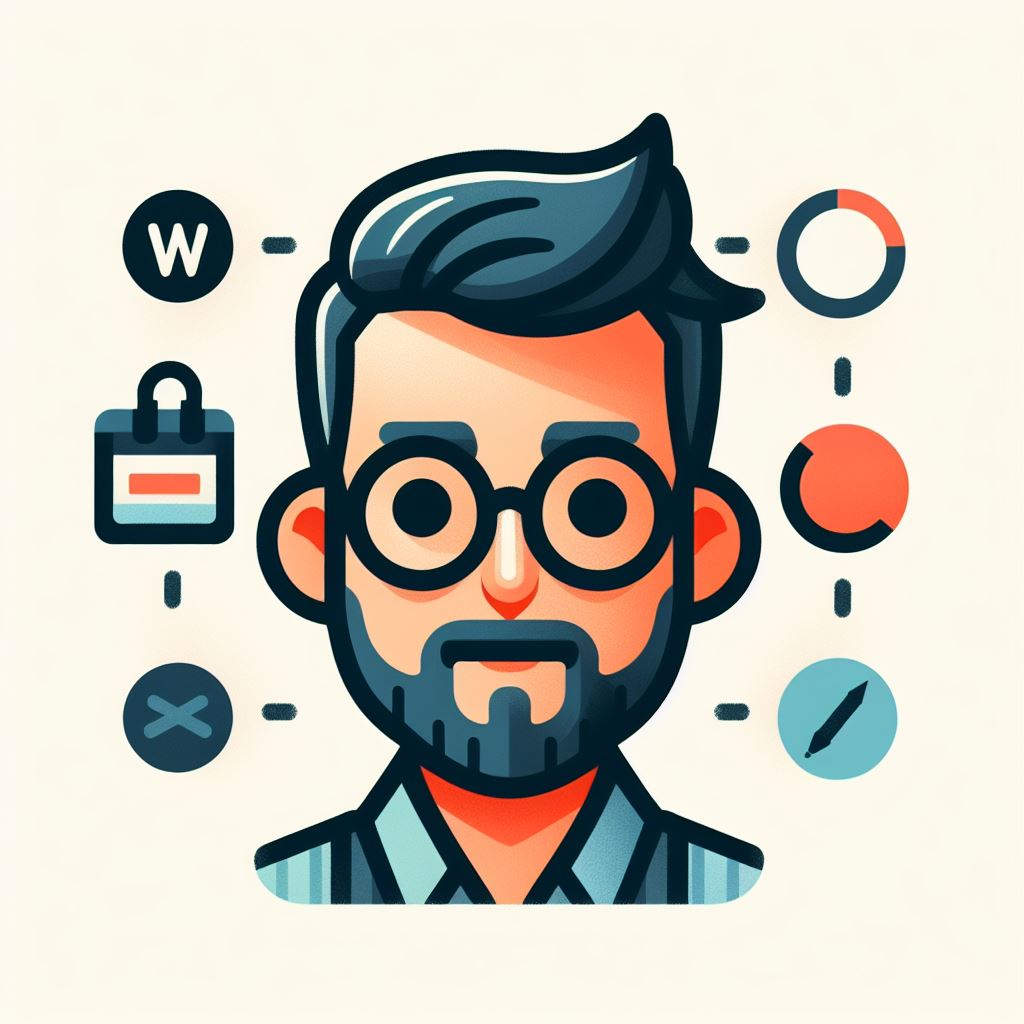How to spot a concussion and what to do if you suspect a brain injury
Concussions and traumatic brain injuries are common occurrences, especially among athletes engaged in contact sports. However, it’s crucial to understand that such injuries can happen to anyone, whether it’s a fall or a blow to the head, such as in a car accident.
According to the Centers for Disease Control and Prevention (CDC), there were over 223,000 hospitalizations related to traumatic brain injuries (TBI) in 2019, not accounting for cases where the injured individuals didn’t seek hospital treatment.
Returning to physical activities too soon after a concussion can escalate the risk of severe injury or even death, as it hinders the healing process. Research indicates that athletes who persist in playing with concussion symptoms are six times more likely to experience prolonged recovery. Hence, it is paramount to identify concussions early on.
Here’s how to spot a concussion and what actions to take if you suspect a brain injury.
What is a concussion?
A concussion is a minor injury to the brain that interferes with its normal functioning. Typically, it occurs due to a sudden blow or impact to the head. It’s essential to note that experiencing a loss of consciousness is not a prerequisite for sustaining a concussion.
Also referred to as a mild traumatic brain injury (mild TBI), the term “mild” in no way diminishes the seriousness of a concussion. Even though the injury is labeled as “mild,” it demands careful consideration and attention.
What is traumatic brain injury (TBI)?
Traumatic brain injury (TBI) encompasses a spectrum of severity, ranging from mild to moderate and severe. The occurrence of TBIs is often attributed to a forceful impact on the head or a sudden jolt that propels the head and brain into rapid, back-and-forth movement. This abrupt motion can lead to the brain bouncing within the skull, causing damage to brain cells and altering the chemical balance in the brain.
Recognized as the primary cause of death and disability among children and young adults by the National Institutes of Health, traumatic brain injury is also a significant concern for the elderly population, given the elevated risk of slips and falls. Accurate diagnosis and timely intervention are paramount for facilitating a prompt recovery following a substantial brain injury.
Signs of a concussion
Identifying the signs of a concussion promptly is crucial. Here are key indicators to watch for shortly after a suspected concussion:
- Blurred or Double Vision: Distorted or overlapping vision.
- Eye Strain: Uncomfortable or painful sensations in the eyes.
- Light Sensitivity: Heightened sensitivity to light.
- Unusually Sized Pupils: Irregular pupil size in the eyes.
- Eye Movement: Abnormal or jerky eye movements.
- Trouble Focusing: Difficulty concentrating or maintaining attention.
- Confusion: Mental disorientation or bewilderment.
- Loss of Consciousness: Temporary or complete loss of awareness.
In the presence of any of these concussion symptoms, it is imperative that individuals refrain from engaging in any physical activity. Immediate medical attention should be sought for a thorough evaluation.
How to detect a concussion or brain injury
Recognizing a potential concussion or brain injury requires a keen understanding of symptoms and employing appropriate diagnostic methods. Here’s a comprehensive approach:
Symptom Recognition:
- Utilize a checklist of common symptoms, including blurred vision, confusion, sensitivity to light, and more.
- Engage the person by asking simple questions about personal details to assess memory loss.
Observational Measures:
- Pay attention to changes in behavior, mood, or responsiveness.
- Monitor for any indications of discomfort, difficulty in thinking, or reluctance to acknowledge memory issues.
Cognitive Assessment:
- Inquire about personal details, location, or recent events to assess cognitive function.
- Encourage honest communication and assure them that taking precautions and resting are crucial.
Sport-Specific Evaluation:
- In sports, implement baseline balance and cognitive tests before the season begins.
- In case of injury, re-administer the same tests to compare with the baseline performance.
- Substantial discrepancies in test results may signal a potential concussion.
It’s imperative to approach the detection process with sensitivity and encourage individuals to prioritize their well-being, especially in the context of sports-related injuries. Seeking medical advice for a thorough evaluation is recommended.
When to get medical help for a concussion or traumatic brain injury
Immediate medical help is crucial if you or someone you know experiences the following symptoms after a concussion:
- Loss of Consciousness: Seek help if there is a loss of consciousness.
- Worsening or Severe Headache: Persistent, severe, or worsening headaches require immediate attention.
- Confusion: Any signs of confusion should prompt a medical evaluation.
- Extreme Sleepiness or Difficulty Waking Up: Inability to stay awake or waking up becomes challenging.
- Vomiting: Persistent or severe vomiting needs medical intervention.
- Weakness, Numbness, or Difficulty Walking/Talking: Any issues with motor skills or speech should be addressed promptly.
- Seizures or Convulsions: Immediate medical assistance is necessary for uncontrollable shaking of limbs.
- Sudden Change in Thinking or Behavior: Any abrupt alterations in cognitive function or behavior warrant medical attention.
If concussion symptoms persist beyond two weeks, consulting a doctor is advisable. Prolonged symptoms may include:
- Ongoing Headaches
- Vertigo
- Dizziness
- Balance Problems
- Communication Issues
- Irritability or Grouchiness
- Difficulty Paying Attention or Confusion
Prompt medical evaluation ensures a comprehensive understanding of the severity of symptoms and facilitates appropriate treatment.
How long do concussion symptoms typically last?
Monitoring concussion or traumatic brain injury (TBI) symptoms in the initial days after an injury is crucial. Generally, individuals fully recover from a straightforward concussion within one to two weeks. However, the recovery period may extend for some individuals. Given the range of concussions from mild to severe, each case is unique, and the duration of symptoms can vary. It’s essential to be attentive to any signs of a concussion during the initial days following an injury, as the timeline for recovery depends on the severity of the concussion.
Concussion recovery
Following a head injury, it is crucial to prioritize rest for several days. Overexertion during the early stages of a concussion can exacerbate the issue. This necessitates taking a hiatus from most physical activities and sports. Additionally, protecting the head during the recovery process is of utmost importance, as a second head injury could escalate the severity of the situation. Taking the necessary precautions and allowing adequate time for rest are key components of a successful concussion recovery.
How do I check myself for a concussion?
To self-assess for a possible concussion, pay attention to the following indicators:
- Changes in Day-to-Day Functioning: Observe any alterations in your usual activities or routines.
- Eye Pain and/or Eye Fatigue: Take note of any discomfort or tiredness in your eyes.
- Headache: Be aware of the presence of a headache.
- Changes in Sleep Patterns: Monitor for any shifts in your regular sleep habits.
- Neck Pain or Stiffness: Recognize any pain or stiffness in the neck.
- Imbalance, Dropping Things, Bumping into Things: Note instances of unexplained imbalance, dropping items, or accidentally bumping into objects.
- Impaired Depth Perception: Be mindful of difficulties in perceiving the distance between two objects.
- Difficulty Remembering Things: Acknowledge any challenges you may face in remembering information.
If you experience any of these symptoms, it’s important to seek professional medical evaluation to determine the extent of the situation and receive appropriate care.
How long after hitting head can concussion symptoms start?
Concussion symptoms typically manifest within a few minutes or hours after sustaining a head injury. However, in some cases, these symptoms may not become apparent until a few days later. Therefore, it is crucial to remain vigilant for any potential issues in the days following a head injury. Early recognition and timely medical attention are essential for effective management of concussions.
How does a mild concussion feel?
Following a mild traumatic brain injury, individuals often experience common symptoms such as headaches, memory loss (amnesia), and confusion. The amnesia typically pertains to forgetting the specific event that led to the concussion. Physical indicators and manifestations of a mild concussion may encompass the sensation of a headache. Recognizing these symptoms is crucial for prompt identification and appropriate management of a mild concussion.
How do I know if my head is okay after hitting it?
Identifying signs of a potential concussion is crucial after experiencing a head injury. Look out for the following danger signals:
- Asymmetrical Pupils: Check if one pupil is noticeably larger than the other.
- Persistent Drowsiness: Inability to stay awake or wake up.
- Worsening Headache: A headache that intensifies and persists.
- Impaired Functionality: Slurred speech, weakness, numbness, or reduced coordination.
- Severe Symptoms: Repeated vomiting, persistent nausea, convulsions, or seizures (shaking or twitching).
Should you observe any of these signs, seeking immediate medical attention is crucial for a thorough evaluation of your head’s condition.
Concussions, often caused by the brain impacting the skull forcefully, demand a recuperation period. Regardless of their severity, even mild concussions necessitate time for healing. On average, individuals typically need approximately 7-10 days to fully recover from a concussion. It’s essential to allow the brain adequate time to heal and gradually reintroduce activities to prevent any complications during the recovery process.
Can a concussion be diagnosed by a physical exam?
Concussion diagnosis does not rely on a single test. When a concussion is suspected, your NYU Langone doctor may conduct a comprehensive physical examination. This examination assesses various factors, including strength, balance, coordination, and reflexes, to determine the presence and severity of a concussion. This approach ensures a thorough evaluation of the individual’s condition and aids in developing an appropriate treatment plan based on the observed symptoms and physical indicators.


